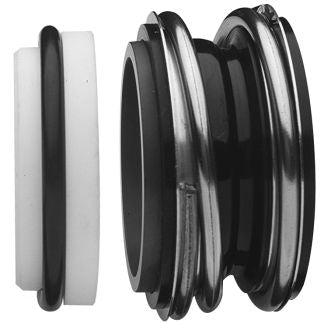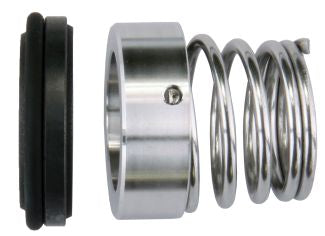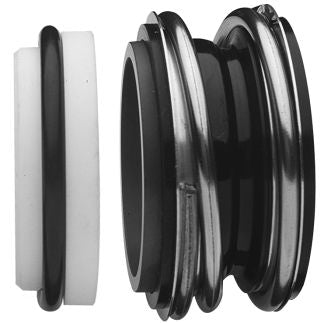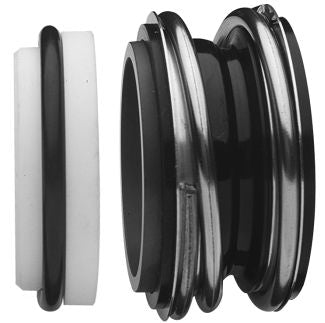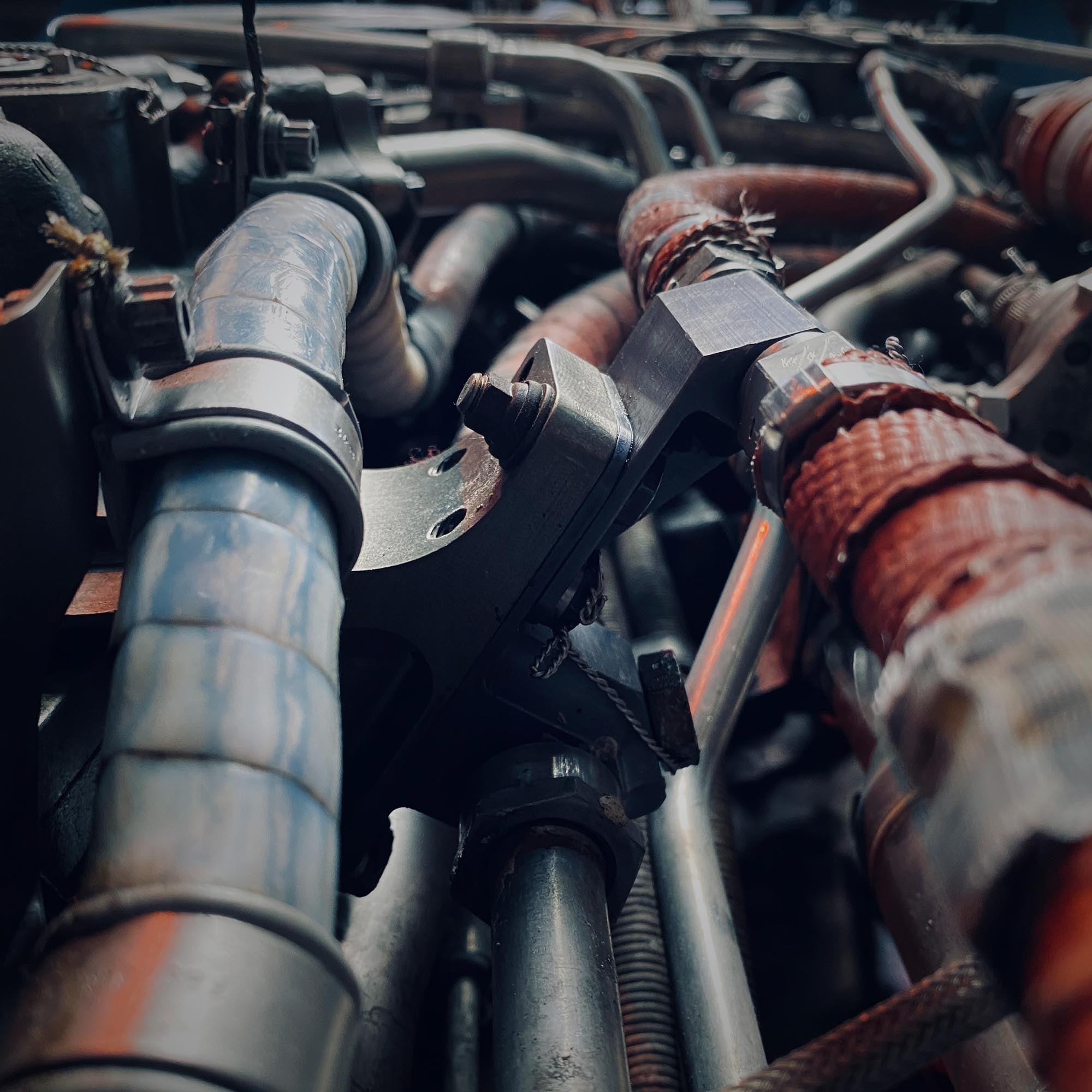
Pusher & Non-pusher Mechanical Seals
Which do you Need and Why?
Beyond the most common design types, mechanical seals are typically categorised into two main setup types; pusher and non-pusher.
What are pusher and non-pusher mechanical seals?
In a nutshell, pusher seals have a dynamic secondary seal which moves axially with the major seal face, whereas non-pusher seals have a static secondary seal which stays stationary against the shaft or sleeve. Below we explain the two types in more detail.
Pusher Mechanical Seals:
The main purpose of a pusher seal is to make sure that the sealing fluid is spread across the face of the seal and that it does not leak out into the atmosphere.
A pusher seal is most commonly used in low-temperature settings and in services that have light ends such as ethylene, methane and propane.
A pusher-type mechanical seal has a primary sealing ring which is put together using springs and a specially designed O-ring. This dynamic secondary seal moves axially with the major seal face. See O-Ring Mounted seals type for more information.
Non-pusher Mechanical Seals:
On the other hand, a non-pusher seal is made up of a bellows assembly and can be used in high temperatures as “grafoil” secondary seals help non-pusher seal better handle the rise in temperatures, unlike the pusher type.
The bellow is the only thing that is needed in this type of seal to prevent any sort of leakage into the atmosphere. There is no use of the dynamic O-ring as the secondary sealing element is the bellow itself.
A bellow is a component of the seal that has two main functions; one, it performs the task of a load element, and secondly, it also works as a sealing element. See Rubber Bellows seals type for more information.
Quick guide to pusher and non-pusher seals:
-
Pusher Seal
- Closing force supplied by springs
- Used in low temp. services
- ‘O’ ring secondary seals
- Used in light end services
-
Non-Pusher Seal
- Closing force supplied by bellows (no dynamic ’O’ ring)
- Can be used in high temp services (metal bellows)
- Metal bellows use ‘grafoil’ secondary seals to handle high temperature
Order before 2pm to get same day dispatch next day delivery
Have questions on which seal type is best for you?
Our expert team are on hand to help.
Our Mechanical Seals range
Check out our extenisve mechanical seal range, including replacement seals for most major manufacturers: Eagle Burgmann, John Crane, Roten/Uniten, AES, Alfa Laval, Grundfos, MTU, PAC-Seal, US Seal and more.
Our most popular mechanical seals
-
Burgmann MG12 Equivilant Mechanical Seal
Regular price From £117.19 GBPRegular priceUnit price / per -
Roten Type 2 Equivalent Mechanical Seal
Regular price From £117.19 GBPRegular priceUnit price / per -
Burgmann MG1 Equivilent Mechanical Seal
Regular price From £117.19 GBPRegular priceUnit price / per -
Burgmann MG13 Equivilant Mechanical Seal
Regular price From £117.19 GBPRegular priceUnit price / per
Looking for the perfect seal?
-
Identify the seal you need
Use toolIndentify the seal you need using our Mechanical Seal Idenitifcation tool by selecting the key design features.
-
Know your material
View guideFind out the ideal seal material for your requirement using our Mechanical Seals Materials Guide.
-
Check Chemical Compatibility
Check materialsUse our compatibility checker to ensure you are using the most effective material for your seal.

